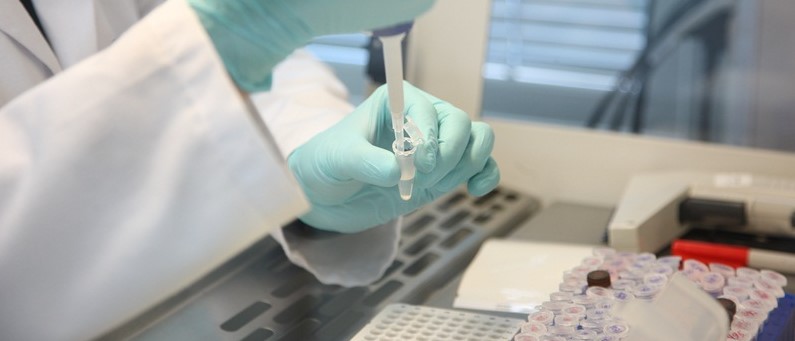NU researchers to analyze DNA of recovered from COVID-19 patients
Scientists from the National Laboratory of Astana Nazarbayev University are planning to study the DNA of individuals who have had COVID-19 in Kazakhstan. Currently, protocols for biomaterial intake are being developed and blood collection in hospitals has been started. All works with primary material will be carried out in the laboratories licensed to work with infected material.
In particular, scientists of National Laboratory Astana plan to study DNA of patients with coronavirus infection, to sequence complete genomes of patients with coronavirus and genomes of coronaviruses themselves to understand the infection’s clinical course and various presentations in humans. Scientists of the National Laboratory Astana Nazarbayev University have the necessary equipment, infrastructure, and relevant research experience at their fingertips to successfully perform such task.
– After the primary procedures, we plan to analyze safe material in NU high-tech laboratories on sequenators of the next generation of the Laboratory of Genomic and Personalized Medicine. The scientists of the Laboratory of Bioinformatics and Systemic Biology will further analyze the sequencing data, – says Dr. Ainur Akilzhanova, Head of the Laboratory of Genomic and Personalized Medicine, National Laboratory Astana.
The National Program of Personalized Medicine Implementation for 2020-2022 was recently approved by the Government of the Republic of Kazakhstan. This program is the first large-scale one of its kind using personalized medicine to study leading chronic non-communicable diseases, with an emphasis on their prevention and early diagnosis. Along with the genetic predisposition of Kazakhstan’s population, scientists will study the pharmacogenetic aspects of therapy.
It is noteworthy that this program’s epidemiological research will cover all regions of Kazakhstan to assess the true prevalence of major chronic diseases and the readiness of primary health care organizations to work in the context of the COVID-19 pandemic. The planned study will also identify antibodies to SARS-CoV-2 to investigate how collective immunity to this infection might be formed.


